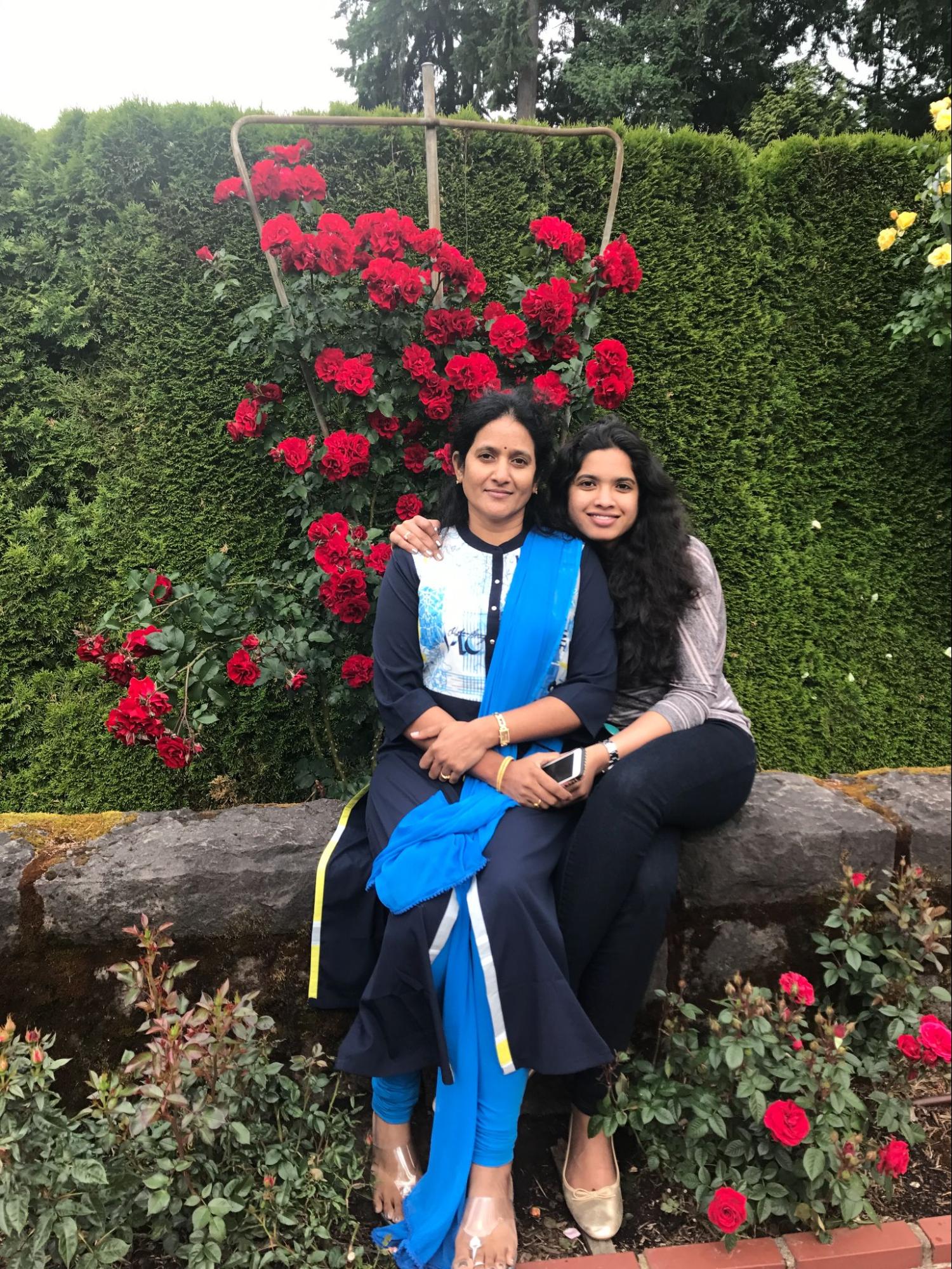Vennela Vipperla: Becoming An Early Engineer at fabric

Vennela began her studies in aeronautical engineering before switching to computational science.
She faced discrimination but used the experience as a compass to guide her to a place where her ideas were respected.
Ryan Bartley, a fabric co-founder, hired Vennela and two other women to form fabric’s early engineering team in 2017.
Her mother influenced her career choices and her husband inspires her to #BreakTheBias for women in tech.
In this employee profile for Threads of fabric, our software development engineer, Vennela Vipperla, shares her story about being a woman in tech and becoming one of the first engineers at fabric. She also shares how male teammates can advocate for women to help #BreakTheBias, the theme for International Women’s Day this year.
Vennela Vipperla, one of the founding engineers at fabric, was twelve years old when she decided she wanted to be an aeronautical engineer. Born and raised in Hyderabad, a city in South India, she left home at the same age to attend school outside of her hometown. Her single mother encouraged her to pursue her dreams in Science, Technology, Engineering, and Mathematics (STEM) despite strong societal and cultural pressure otherwise. Single motherhood was unusual in India, as was sending an only daughter away from home in order to study.
“She encouraged me to do anything I wanted,” Vennela says, speaking of her mother’s strong influence on her life path and career choices. “She taught me to be independent and believe in myself.” When asked who has influenced her most on her journey, it’s clear that Vennela’s mother imparted strength and inner resolve to persevere in a field that was and still is male-dominated. She also mentioned her father being an engineer. “If he could do it, so could I.”
When Vennela began her studies in aeronautical engineering, she was the only woman out of one hundred students. And, when she continued her studies at the University of Texas at Arlington, she was one of only two women out of twenty students. In STEM, gender is one of the many intersecting identities that contributes to feelings of impostor syndrome, with women often being the only or one of very few in their field.
This made her question herself. “There was no one in my family or community who was doing what I was doing,” she says.
Despite her high grades and enthusiasm, visa complications limited Vennela’s opportunities in aerospace engineering, so she switched to computational science. Both fields required software, and Vennela prioritized that commonality rather than remaining rigidly attached to one field. She was not discouraged, believing opportunity is everywhere.

Vennela and her mom at the Japanese Garden in Portland, Oregon
”Keep an open mind, think about what you love to do, and you will succeed. You won’t need an opportunity to be created for you.”
One of Vennela’s interests outside of school and her studies was browsing online. “I didn’t buy a lot of things, but I did browse a lot.” As an engineer, she was fascinated by the inner workings of e-commerce sites and took a position at Staples building their mobile websites and sales pages. This became a newfound passion. “I began to learn about how design functions and found that I loved building websites,” Vennela says.
At Staples, she met Ryan Bartley, a fabric co-founder. Despite Vennela’s relative inexperience, Ryan recognized the power of her innate intellect, drive, and enthusiasm, and brought her on as one of the first engineers at fabric.
“I had two years of technical experience. We had an empty office. But he believed in me, and that helped me believe in myself. I joined because I wanted to see what we could do, and I am so grateful.” Now we are in our fourth year and have over 350 employees. Vennela was one of three engineers brought on initially at fabric. All three engineers were women.
When asked about this year’s International Women’s Day theme, #BreakTheBias, Vennela shared that her early experiences in engineering weren’t always positive. She faced discrimination but used the experience as a compass to guide her somewhere her ideas were respected.
She’s clear that one can’t expect a utopian workplace. Vennela also explained that it’s important to recognize that bias is unconscious and, to #BreakTheBias, we must hold people accountable while leaving room for growth and learning. She shared the process for creating a safe workplace for women at fabric:
“If you feel like something is not right, you are encouraged to say it like it is. This is one of our core values. We’re listened to, supported, and given feedback.”
On the topic of how fabric has helped her grow as an engineer, she says the graph is exponential. “I was given the opportunity to learn and fail. I had some good mentors who accelerated my learning. There’s a lot of confidence that employees will figure it out, in addition to lots of support when we need it.”
As for how men can work to #BreakTheBias, Vennela cites her husband and says he’s always told her to “go for it.” She also says that men need to advocate for women, like Ryan did when hiring fabric’s first engineers, and like she sees many men do at fabric today, especially those in positions of power.
It’s important for men to see women as peers rather than singling them out for their gender, Vennela says. It’s also important for them to understand that bias is unconscious, and, instead of shying away from making mistakes, it’s better to recognize them and learn from them.

People advocate and writer @ fabric. Published in Vox, Allure, and Lady Science. Creator of FIRES and Socially Awkward.